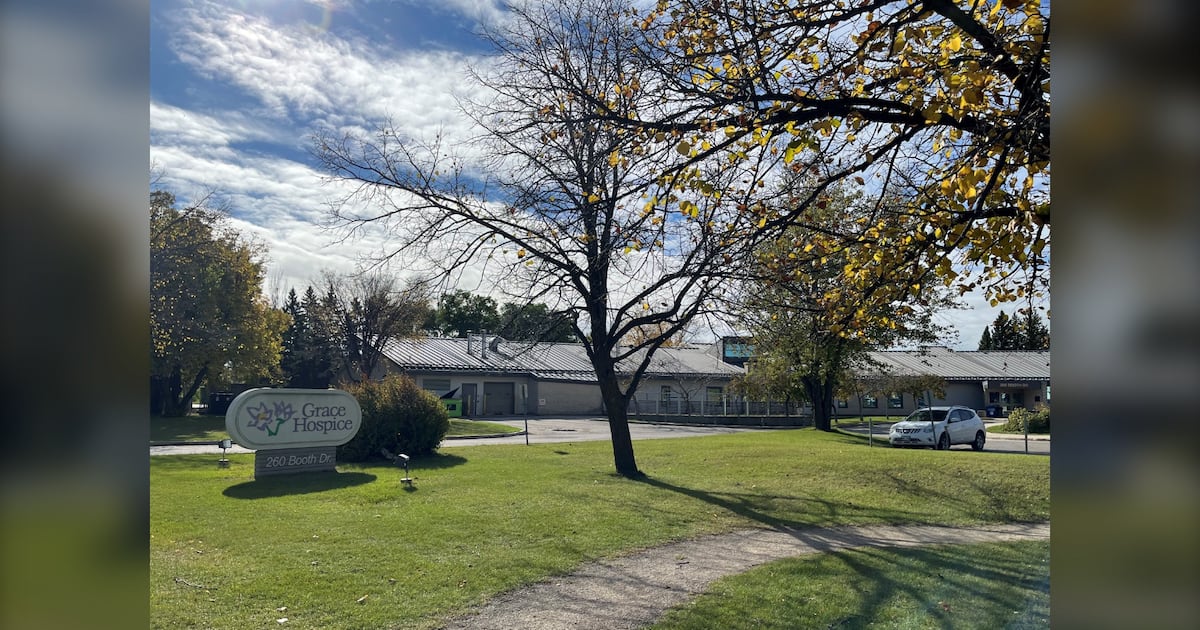Lifestyle
Manitoba Family Urges Change as Grandmother Waits for Hospice Care

A family in Winnipeg is advocating for immediate reforms in palliative care as their grandmother, 87-year-old Lorna Teague, awaits a hospice bed to spend her final months. Teague has been diagnosed with terminal cancer after a hospitalization at Grace Hospital for a broken pelvis. With a prognosis of just three months to live, her family is struggling to secure the end-of-life care she needs.
“People in Manitoba are waiting for a bed that doesn’t exist, a hospice bed that doesn’t exist,” said Ashley Casson, Teague’s granddaughter. The family’s plight highlights a pressing issue in the province, where the number of hospice beds falls drastically short of the recommended levels. According to Casson, there are only 16 hospice beds available in Winnipeg, a number that starkly contrasts with the suggested ratio of seven to ten beds per 100,000 people.
The most recent data from the Canadian Hospice Palliative Care Association reveals that Manitoba had the lowest rate of hospice beds in Canada in 2022, with only 1.15 beds per 100,000 individuals. This is significantly below the national average of 3.97 beds per 100,000 people.
The Winnipeg Regional Health Authority (WRHA) confirmed that five individuals are currently on the waiting list for hospice beds. “For people who don’t have much time to live, the fact that they’re on a waitlist competing for just a peaceful place to die with that many other people is pretty sad,” Casson expressed.
Current statistics show that Winnipeg has 16 hospice beds: 12 located at Grace Hospice and four at Jocelyn House. In a statement to CTV News, the WRHA noted that “wait times for hospice care can vary, ranging from just a few days to approximately six to eight weeks.” This variability raises concerns for families facing imminent loss.
Minister of Health, Seniors and Long-Term Care Uzoma Asagwara addressed the issue, stating that Manitoba has established a dedicated provincial team focused on improving palliative and end-of-life care. This initiative aims to enhance care planning by bringing together front-line providers and experts.
Despite these efforts, Casson remains heartbroken over the current situation. “My nana only has one other person in her room, but it’s just—there’s no privacy. There’s no dignity. It’s just inhumane how people are expected to spend the last few months of their life,” she remarked.
In response to the ongoing challenges, Asagwara mentioned that a new subcommittee has developed a three-year plan aimed at implementing national palliative care standards. Additionally, the government is working on expanding hospice services in other regions to better meet the needs of patients.
The Casson family’s story underscores the urgent need for systemic changes in Manitoba’s healthcare framework to ensure that individuals facing terminal illness receive the compassionate care they deserve.
-

 Science2 months ago
Science2 months agoToyoake City Proposes Daily Two-Hour Smartphone Use Limit
-

 Health2 months ago
Health2 months agoB.C. Review Reveals Urgent Need for Rare-Disease Drug Reforms
-

 Top Stories2 months ago
Top Stories2 months agoPedestrian Fatally Injured in Esquimalt Collision on August 14
-

 Technology2 months ago
Technology2 months agoDark Adventure Game “Bye Sweet Carole” Set for October Release
-

 World2 months ago
World2 months agoJimmy Lai’s Defense Challenges Charges Under National Security Law
-

 Technology2 months ago
Technology2 months agoKonami Revives Iconic Metal Gear Solid Delta Ahead of Release
-

 Technology2 months ago
Technology2 months agoSnapmaker U1 Color 3D Printer Redefines Speed and Sustainability
-

 Technology2 months ago
Technology2 months agoAION Folding Knife: Redefining EDC Design with Premium Materials
-

 Business2 months ago
Business2 months agoGordon Murray Automotive Unveils S1 LM and Le Mans GTR at Monterey
-

 Technology2 months ago
Technology2 months agoSolve Today’s Wordle Challenge: Hints and Answer for August 19
-

 Lifestyle2 months ago
Lifestyle2 months agoVictoria’s Pop-Up Shop Shines Light on B.C.’s Wolf Cull
-

 Technology2 months ago
Technology2 months agoApple Expands Self-Service Repair Program to Canada









